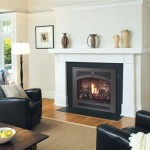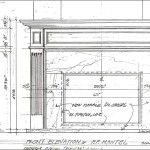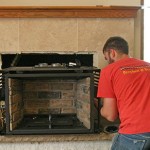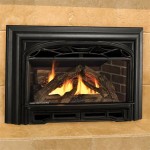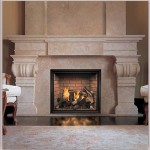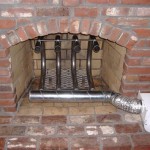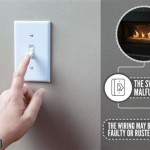Caulk for Fireplaces: A Guide to Sealing and Protection
Fireplaces, with their cozy charm and warmth, are a staple in many homes. However, these inviting features also present challenges, particularly when it comes to sealing and protection. Cracks and gaps around the fireplace can allow heat to escape, leading to energy loss, and can even pose safety hazards. This is where caulk comes in, playing a crucial role in ensuring the functionality and safety of your fireplace.
Types of Caulk for Fireplaces
Choosing the right caulk for your fireplace is essential. The type of caulk you select should be specifically designed for high-temperature applications and withstand the heat generated by a burning fire. Here are some common types of fireplace caulk:
- High-Temperature Silicone Caulk: This type of caulk is highly resistant to heat and is commonly used around fireplaces, wood stoves, and chimneys. It's flexible, durable, and can withstand temperatures up to 500°F.
- Fireplace Caulk: This type of caulk is specifically formulated for fireplaces and is typically made from a blend of silicone and other heat-resistant materials. It offers excellent adhesion and can withstand temperatures up to 1,200°F.
- High-Temperature Sealant: This type of sealant is often used for sealing larger gaps and cracks around fireplaces. It's available in a variety of colors and finishes and can withstand temperatures up to 1,500°F.
When selecting caulk, it's essential to pay attention to the manufacturer's recommendations regarding temperature resistance and suitability for your specific fireplace type.
Benefits of Using Caulk for Fireplaces
Caulking your fireplace offers a range of benefits, enhancing both its performance and safety. Key advantages include:
1. Improved Energy Efficiency
By sealing gaps and cracks around the fireplace, caulk helps prevent heat from escaping into the surrounding area. This translates to lower heating costs and better energy efficiency for your home.
2. Enhanced Safety
Cracks and gaps around the fireplace can allow flammable materials like embers or sparks to escape, posing a fire hazard. Caulking seals these openings, preventing potential fire risks and creating a safer environment for you and your family.
3. Reduced Drafts
Gaps around the fireplace can create drafts, allowing cold air to enter the room and making it uncomfortable. Caulking effectively eliminates these drafts, providing a more comfortable and pleasant indoor environment.
4. Prevention of Water Damage
Fireplaces can be susceptible to water damage, especially if they are located near exterior walls or have cracks that allow water to seep in. Caulking provides a protective barrier against moisture infiltration, preventing damage to the fireplace and surrounding structures.
5. Improved Aesthetics
Caulking can also enhance the aesthetics of your fireplace. It can provide a clean, finished look and help maintain a polished appearance.
Tips for Applying Caulk to Fireplaces
Applying caulk to your fireplace requires careful preparation and technique to ensure optimal results. Here are some essential tips:
- Clean the Surface: Before applying caulk, thoroughly clean the surface to remove dirt, debris, and any loose materials. Use a wire brush or scraper to get rid of any rust or flaking paint.
- Prepare the Caulk: Cut the caulk tube at a 45-degree angle to create a smooth, even bead.
- Apply the Caulk: Apply the caulk evenly to the gaps and cracks, using a smooth, continuous motion. Be sure to fill the entire gap completely.
- Smooth the Caulk: Use a damp finger or caulk tool to smooth out the caulk, creating a clean, even finish.
- Allow the Caulk to Cure: Follow the manufacturer's instructions regarding curing time. Avoid exposing the caulk to excessive heat or moisture during this time.
Applying caulk to your fireplace requires a certain level of skill and expertise. If you're not comfortable doing it yourself, it's best to seek professional help from a qualified contractor.

Dap 10 1 Oz Black High Heat Mortar Sealant 12 Pack 7079818854 The Home Depot

Dap 10 1 Oz Black High Heat Mortar Sealant 12 Pack 7079818854 The Home Depot
Silicone High Temperature And General Purpose

Dap 10 1 Oz Black High Heat Mortar Sealant 12 Pack 7079818854 The Home Depot

Fireplace Stove Repair

Fireplace Mortar Buff Caulking Cartridge Aw Perkins Awp 31
Caulk Between Trim And Brick Diy Home Improvement Forum

How To Tile A Fireplace Even If It S Brick The Handyman Daughter
Grout Or Caulk Gas Fireplace Stacking Stone Ceramic Tile Advice Forums John Bridge

How To Prep Brick Fireplace For Painting Et Painters

